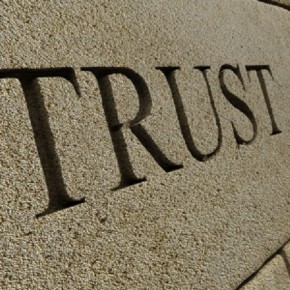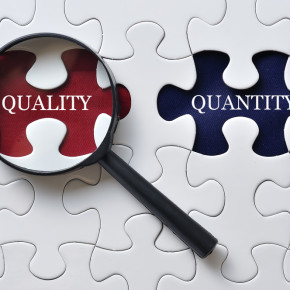August 2016
Culture – Nature & Nurture
We hear a lot about how important a “culture” is in our businesses. And most of us think it is important to have a positive culture in our workplace. So how is that done? Do we have control over it?
Let’s talk about two different types of cultures – sociological and biological. A sociological culture is what we usually think about– those elements that make up the customs or beliefs of a group. But another culture is biological – which most of us haven’t thought about since 8th grade biology when we watched things grow in that little glass petri dish. That was a culture – nutrients that were bound together and growing something.
So why have I brought up these two very different types of cultures? Because when we think about our business cultures we should think both about what elements we want to emphasize and how we put them together to make them grow.
In the formative years of my company I thought a lot about what type of culture I wanted to develop. I finally realized that I was going about it all wrong. I actually could not create a culture. I could emphasize, prioritize and nurture various elements and help direct them but I could not “grow” a culture.
But I knew that those elements I put into the “petri dish” could either grow a positive or negative workplace. And that could make or break us.
Why? Because ultimately the culture is the persona of the company. It is how our customers, clients, vendors and employees describe or feel about us. And it is how we will evaluate our successes and failures.
When you hear someone complaining about their workplace, most likely it’s because of their perception of its culture – negative, untrustworthy, unsupportive, harsh. Or on the positive side you hear – truthful, encouraging, friendly, exciting.
These attributes of culture are not very tangible – most of them are “feelings”. So how do you encourage, emphasize and ultimately help grow “feelings”? It’s not easy but it will define who you are as a company.
My field of expertise is communications – a very broad category which includes media, advertising, design and branding. We have helped clients with how to tell their story. We have told them what colors to use in their logos, what social media platforms to emphasize and what type of advertising to use for various messaging. No matter how important those elements were in communicating their story, however, the most important element of their company was the culture and how they nurtured its growth – either positive or negative.
No matter how great the communications program, storyline or website design – it will always take second place to the internal and external perceptions of the company’s culture.
Jesus said a lot about culture and its importance. He talked about how the Pharisees and Sadducees were more interested in how they looked then what was in their hearts. He said that when we only follow rules that humans set up and not care about how we treat others we were really not getting the point. Jesus knew that the intangible things like loving and caring for one another would change a culture. And ultimately, if nurtured, it would spread and grow. And that’s what happened in the early church. People saw the difference between truth and lies, love and hate and they began to change their culture and it grew. It grew so much that not even the most powerful empire in the world could stop it.
But we must be careful because the elements we put in the petri dish will grow a culture – one that can grow a disease or destroy it. That’s why our foundational cultural elements are so important to business, family and society. After all, that is how we will be perceived, remembered and ultimately evaluated.
_________________________________________________________________________________________________________________
April 2016
Why Ask Why?
 Sometimes I think I’m going crazy. I can’t seem to stop asking, “Why?” It even happens in my dreams – I sometimes ask myself, “Why am I dreaming this?” – WHILE I’m dreaming? So does that make me crazy?
Sometimes I think I’m going crazy. I can’t seem to stop asking, “Why?” It even happens in my dreams – I sometimes ask myself, “Why am I dreaming this?” – WHILE I’m dreaming? So does that make me crazy?
Well, according to some pretty substantial educational research, people who ask “why” all the time would be categorized as Lifelong Learners or people high on the “Inquisitive Spectrum”. Is that good? If it is, why is it good? There I go again!
I don’t know when I started becoming more comfortable with my continual questioning, but I think it had to do with my job. I worked with reporters for nearly 40 years. I liked them. I still do. And I think the reasons were that reporters, writers and editors tend always to be interested in subjects with which they may not be very familiar. They are Lifelong Learners.
Many such people are “Type E” personalities. They have broad interests and become passionate about the subjects that motivate them. They thrive on new ideas and challenges. They are inquisitive and love to learn. They are “Why” people.
And, interestingly enough, research has found that most entrepreneurs and CEOs are Type E personalities.
Now, before you think I am saying Type E personalities are something special – here are the many downsides. “Typees” (as they are called) want to have complete control over their environment, can be so direct that they can seem to be insensitive and can appear to live on the edge because they have high risk tolerances. These are not easy personality traits to live with – ask my wife! But the breadth of their interests makes life interesting – for them and for others.
So let’s get back to my original point – Why ask Why? As you can see, leaders tend to be Lifelong Learners and Why people. And that’s good because we want our leaders to be asking the tough questions, digging deeply into issues to find solutions and then take the necessary risks to solve the problems.
But do you have to be a Typee to be a Lifelong Learner? No. Typees are lucky – it comes naturally to them but anyone can develop both a love and an ability to never stop learning. A mentor, coach or teacher can help show “why asking why” is important to you, your family, co-workers and friends. Once a person develops that desire to ask questions they begin to understand one another better, develop more empathy, grow and forgive more naturally.
I have always found it interesting that the Bible has so many “why” questions – hundreds of them. However, sometimes I think there are more questions than direct answers. Just take a look at some of them:
“Why do the nations rage and the peoples plot in vain?” (Acts 4:25). “Why do you look for the living among the dead?” (Luke 24:5). “Why do you call me ‘Lord, Lord’ and do not do what I say?” (Luke 6:46). “Why does the way of the wicked prosper?” (Jeramiah 12:1). “Why are you downcast, O my soul?” (Psalm 43:5). “Why have you repaid good for evil?” (Genesis 44:4).
Pretty important and deep questions. And we can even ask, “Why does the Bible ask these questions?” But that’s for anther blog topic.
Asking “why” is good. Seeking answers will stretch our imaginations, creativity and relationships. But we have to do it for the right reasons and in the right way. We should develop the ability to ask “why” with empathy and love. Not only will this develop deeper meanings in our own lives, but we will be showing others that we are interested in them, their lives, interests, successes and trials. Those questions will make us “Other-Centered” – a way of looking at life through other people more than ourselves. Now that’s a good enough reason to become a “Why Person”.
_________________________________________________________________________________________________________________
March, 2016
To Trust or not to Trust

It seems as though each time we go through a political election cycle the pundits bring out the research of how little we trust our leaders. Today we keep hearing that the “trust factor” has decreased significantly between the elected and electorates. Surprised? I’m not. Trust depends a great deal on information, knowledge, certainty and expectation.
In the age of digital and social media we have come rely on information that is more image than authentic. Most communications experts acknowledge that the explosion of new media has so dramatically changed the way we gather information that it has begun to skew the trust levels of authority, leaders and institutions. This may be because we are relying more on images and impressions rather than data or facts.
When this occurs trust decreases and doubt and uncertainty increases. We identify less with our peer groups and traditions and the foundations of these begin to crumble.
Sounds pretty depressing, right? Well, it is because trust is so important. Trust is the ultimate building block of relationships – friends, family, business and faith. Without it our efforts to go forward with certainty and hope dramatically decrease.
But trust is an active word. In order for someone or something to be trusted it requires proof of honesty and truth before being accepted. It must be earned, not just expected.
Businesses leaders should value trust as one of their greatest assets. The rewards are obvious. But it takes the action of our minds and hearts in order for that asset to be valued by our customers, employees and co-workers.
Perhaps the best example of such action is seen in one of the most famous crisis communications case studies – the 1982 Tylenol poisoning. The Chairman of Johnson & Johnson, James Burke, took a stand few business leaders would have been willing to take. When the news first broke that it appeared there was a connection between Tylenol Extra-Strength Capsules and multiple poisonings, he immediately recalled all Tylenol products, some 31 million containers, at a cost of more than $100 million. He did this without a government-required recalled or even definitive proof that the capsules (which had been tampered with) were the actual or only reason for the deaths. He knew and stated clearly that the company had a public and moral responsibility and that if their product were ever to be trusted again they had to take drastic measures. And they did. Johnson & Johnson became the first company to require tamper-proof packaging for their products and instituted extraordinary measures of quality assurance before re-introducing Tylenol publically. Today consumer research shows Tylenol continues to be listed in the top 5 “most trusted” products.
Trust is so important that it is a sacred bond. But it must be nurtured – as demonstrated by the Tylenol case. Once it is instilled it can be life-changing. That’s why trust is such a significant theme in the Bible. Time and again Scripture says that if we trust in people alone, our accomplishments or our possessions we will be disappointed. We are truly to trust in God alone because He is unchanging even when our circumstances and leaders do. Ancient texts give truth for today.
As we watch our trust diminish in our culture we have the ability to do something about it. We can create trustworthy environments that are built upon truth, conviction and faith. We can produce and require in-depth and trustworthy information. But we must require these of our leaders, businesses and families. That will create the true building blocks of a firm foundation for every aspect of our lives.
________________________________________________________________________________________________________________
February, 2016
Success = Quantity + Quality
 Do you ever wonder how people define success? In my experience, and probably yours, it’s usually by “quantity” numbers – profit, sales, assets, real estate, etc. Whereas all these are valuable indicators we seem to equate success with growth in size and profit. But do we loose perspective when we only look at these numbers? What about the “quality” numbers that deal with relationships, loyalty and significance.
Do you ever wonder how people define success? In my experience, and probably yours, it’s usually by “quantity” numbers – profit, sales, assets, real estate, etc. Whereas all these are valuable indicators we seem to equate success with growth in size and profit. But do we loose perspective when we only look at these numbers? What about the “quality” numbers that deal with relationships, loyalty and significance.
I don’t want you to think that I’m not interested in financial success. Profitable growth allows for us to fulfill our business and personal goals. However, I learned early in my career that we need to add numbers into the success equation relating to customer and employee sense of connectedness. But those aren’t as easy to define or quantify. That may be one reason many stick with the meaning of success as financial profit.
Years ago I had that privilege of working with Nobel Prize Laureate Milton Friedman, Economist at the University of Chicago. He is famous for his quote, “There is one and only one social responsibility of business – to use its resources and engage in activities designed to increase profits.” I remember thinking it sounded rather harsh but I had the opportunity to speak with Dr. Friedman and I found, thankfully, his definition of resources included the more variable assets of empowered employees and loyal customers.
One of my favorite business leaders is Bill Pollard, former chairman of ServiceMaster. In his book, Serving Two Masters? Reflections on God and Profit*, he says, “Profit is a tool for accomplishing our end goals of honoring God and developing people. As we manage with economy and care for those producing the profit, we recognize profit as a virtue of accountability, not a vice of self-aggrandizement.” There it is – profit and numbers can become a way to prove our human success rather than a way in which to serve our clients, associates and God’s plan for our businesses.
But the quantity factor is not only misused in business. Pastors regularly get the question, “How big is your church? How many members do you have? How many staff do you have?” So success in ministry is evaluated by “how many” rather than “how well”. Some see church growth by the numbers in the pews rather than the spiritual maturity and growth of those people.
So how do we include the less-tangible numbers of how well we serve our associates and customers into the success equation? It isn’t easy but here are some suggestions.
I would start with a baseline survey for customers and work associates that would ask emotive questions describing their reasons for working with you or purchasing your services/products. If the answers are given in a linear number scale you will be able to use this as the foundation. Follow-up surveys on a bi-yearly basis or other significant timeframes will give you the ability to put both quantitative and qualitative information into your success formula. There are other successful methods used to do this and I hope you will research the options that best fit your circumstances..
The bottom line – don’t just think quantity – think quality. Both are necessary numbers to make a balanced equation of success.
*Serving Two Masters?, by William C. Pollard, ©2006 by the ServiceMaster Foundation. Published by HarperCollins Publishers.
_________________________________________________________________________________________________________________
January, 2016
The Only Legacy That Really Matters
2016 is a banner year for me – it is the year I technically become a senior citizen – at least in the eyes of the government. I have to admit that I’ve enjoyed the “senior discounts” for quite some time at movie theaters and other venues – but I still cringe when I ask for it.
Putting my vanity issue aside, I have begun to think about what it means to reach this milestone. I have been asking myself, “Does wisdom really come with age? Do I deserve more respect as my hair thins and turns gray? How should my priorities change – if at all? And of course – is it appropriate for me to buy slim-style jeans?”
But the most important question I’m asking is, “What is the legacy that I’m leaving?” It’s funny, I never really thought about that question when I was in my 30s or 40s – but sometime around my late 50s I started to think about it. Now I’m wondering why it took me so long. I think that if I had asked that question earlier I would have made some major adjustments in my portfolios when it was easier and when it might have made a bigger difference.
You are probably thinking that I’m speaking primarily about finances – that’s what most people think about when we talk portfolios and legacies. But actually I’ve come to realize that there are many portfolios that make up our legacy – and financial is not the one that makes the biggest difference.
It is my spiritual portfolio that makes the biggest difference in my legacy. It drives all the rest – financial, family and social.
If we look at our legacy as the inheritance we leave to our family, friends, colleagues and business associates then it’s put in the right light. Our legacy is not just what we leave behind but what others inherit from it.
The Bible has a lot to say about inheritance – some about property and possessions but a lot about eternal inheritance. When we look at the heart of all of them we see that they are built upon Jesus’ legacy to us. So ours should be built upon God’s foundations – not our own.
If I place a high priority on being a servant to others, then those people I serve inherit my legacy of kindness and helpfulness. Alternatively, if I am selfish with my time, money and devotions then others will inherit my legacy of self-centeredness and narcissism.
And what makes this so important is that what we inherit many times determines how we develop our own legacy. That alone gives us a good reason to prioritize the foundations of what we leave behind.
2016 is not just a milestone for me – it can be one for all of us. You don’t have to be turning 65 to rethink the priorities of your spiritual portfolio. In fact, do yourself, family, friends and business associates a favor – do it now. Start this year with a reassessment of your portfolios that will make up your legacy – one that will have an eternal difference for all who inherit the gifts you have been given according the the only legacy that really matters.

